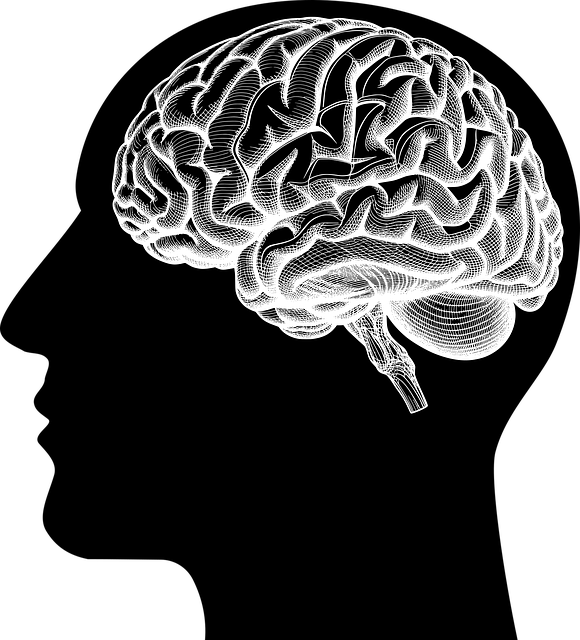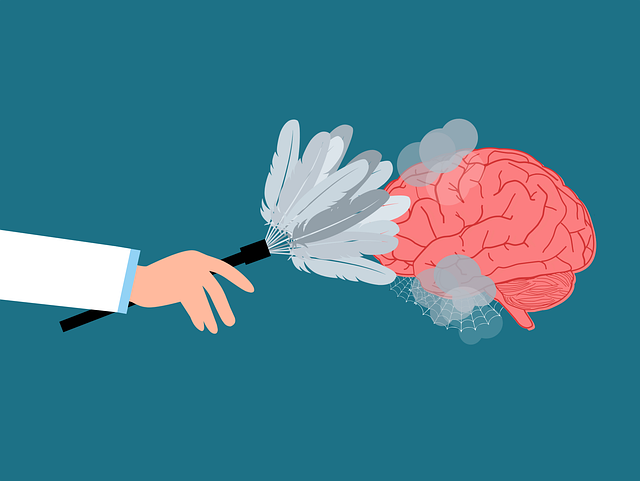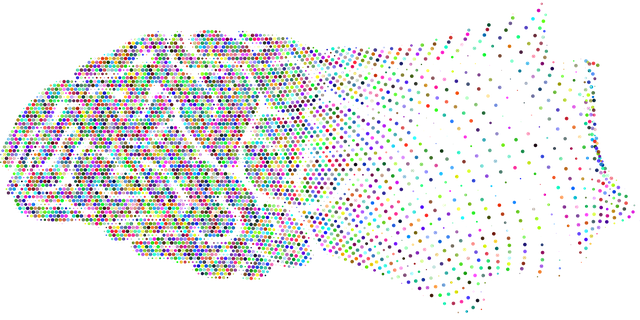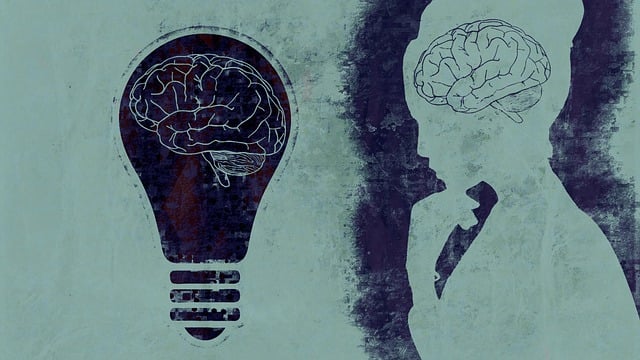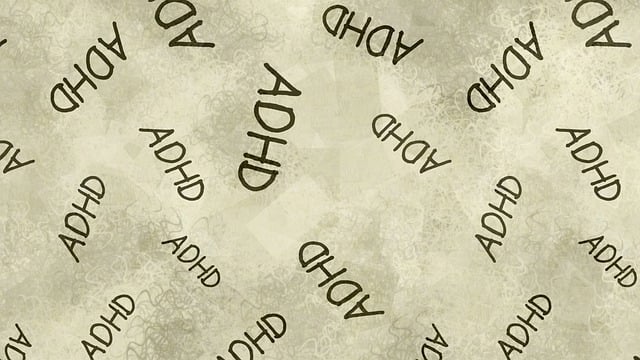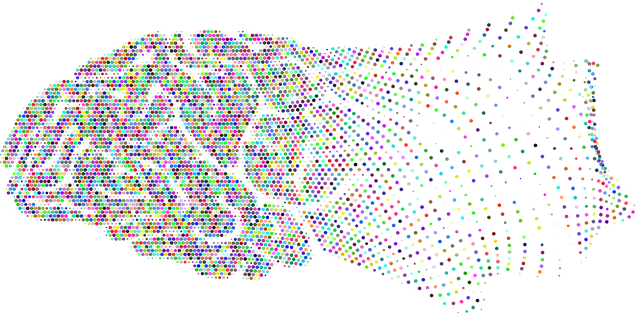Mental wellness coaching for children is a growing field addressing rising ADHD diagnoses and academic pressures through holistic methods. Early identification of Attention Deficit Disorders (ADD/ADHD) through comprehensive evaluations is crucial for effective tailored interventions. Incorporating Mental Wellness Journaling, play therapy, mindfulness, empathy-building, and collaboration among coaches, parents, and educators creates supportive ecosystem enhancing children's emotional well-being and academic success.
Mental wellness coaching programs for children are gaining traction as a vital tool in addressing the growing need for early interventions. This article explores the development of such programs, focusing on strategies to identify and support young minds with Attention Deficit Hyperactivity Disorder (ADHD) through effective coaching techniques. From understanding the nuances of child mental health to incorporating play therapy and mindfulness, we delve into creating supportive ecosystems that foster growth. Key topics include ADD/ADHD evaluations and collaborative efforts between parents, educators, and coaches.
- Understanding Mental Wellness Coaching for Children: A Growing Need
- Identifying ADD/ADHD in Young Minds: Early Evaluations and Interventions
- Designing Effective Coaching Programs: Strategies for Success
- Incorporating Play Therapy and Mindfulness Techniques for Kids
- Building a Supportive Ecosystem: Collaboration with Parents and Educators
Understanding Mental Wellness Coaching for Children: A Growing Need

Mental wellness coaching for children has emerged as a crucial and growing need in modern society. As children face increasing pressures from academic demands, social interactions, and technological advancements, their emotional well-being becomes a paramount concern. The rise in diagnoses of conditions such as Attention Deficit Hyperactivity Disorder (ADHD) further highlights the importance of early intervention and support. Therapy for young children goes beyond mere diagnosis; it involves holistic approaches to promote emotional well-being promotion techniques that cater to each child’s unique needs.
Coaching programs focused on mental wellness aim to foster inner strength development in children, equipping them with essential life skills to navigate challenges. Cultural sensitivity in mental healthcare practice is also integral, ensuring that interventions are inclusive and respectful of diverse backgrounds. By addressing these issues proactively, coaches play a vital role in shaping resilient individuals who can thrive both academically and personally.
Identifying ADD/ADHD in Young Minds: Early Evaluations and Interventions

Early identification of Attention Deficit Disorder (ADD) or Attention Deficit Hyperactivity Disorder (ADHD) in young minds is crucial for effective therapy and interventions. Evaluations should commence as early as possible to foster accurate diagnosis, enabling tailored support for children’s mental wellness. Parents, caregivers, and educators play a vital role in recognizing subtle signs, such as difficulty focusing, impulsivity, or hyperactivity, which may indicate an underlying condition.
Through comprehensive assessments, professionals can guide self-awareness exercises that promote positive thinking in young individuals. Encouraging Mental Wellness Journaling Exercises can help children articulate their thoughts, emotions, and behaviors, providing valuable insights for therapists. Early interventions using evidence-based strategies significantly impact a child’s long-term mental health and academic success, ensuring they receive the necessary guidance and support to thrive.
Designing Effective Coaching Programs: Strategies for Success

Designing effective coaching programs requires a multifaceted approach, especially when targeting mental wellness among young children. Incorporating strategies that cater to individual needs and preferences is key to success. For instance, integrating Mental Wellness Journaling Exercise Guidance can provide children with a creative outlet to express their emotions and track progress over time. This not only enhances self-awareness but also fosters a sense of agency in managing their mental health.
Additionally, cultivating Empathy Building Strategies within coaching programs is essential for creating a supportive environment. Coaches can model empathetic behavior by actively listening, validating feelings, and offering non-judgmental guidance. Such approaches help children develop emotional intelligence, improve interpersonal relationships, and ultimately reduce symptoms associated with conditions like ADD-ADHD. Through tailored Mental Wellness Coaching Programs Development, professionals can ensure that each child receives the best possible care, empowering them to navigate life’s challenges with resilience and grace.
Incorporating Play Therapy and Mindfulness Techniques for Kids

Incorporating play therapy and mindfulness techniques into mental wellness coaching programs for young children is a powerful approach to addressing their unique needs. Play therapy provides a safe and non-threatening environment for kids to express themselves, process emotions, and develop essential social skills. Through imaginative play, they can explore and make sense of their experiences, fostering resilience and coping mechanisms from an early age. Mindfulness practices, tailored for children, teach them to be present in the moment, regulate emotions, and enhance self-awareness, all of which are crucial components of mental wellness.
This integrated therapy approach is especially beneficial for children diagnosed with Attention Deficit Hyperactivity Disorder (ADHD) or showing signs of ADD, as it offers alternative methods to manage symptoms beyond traditional medication or behavioral interventions. By incorporating empathy building strategies and compassion cultivation practices into play sessions, coaches can help young clients navigate social challenges, improve academic performance, and reduce the risk of burnout. These techniques not only promote emotional well-being but also encourage a sense of belonging and self-compassion, laying a solid foundation for their future mental health and overall development.
Building a Supportive Ecosystem: Collaboration with Parents and Educators

Creating a supportive ecosystem is vital for the effective development of mental wellness coaching programs, especially when targeting young children. Collaboration between coaches, parents, and educators is key to fostering a holistic approach to a child’s mental health. Parents play a crucial role in providing consistent support at home, while educators can offer valuable insights into a child’s behavior and social interactions at school. By aligning their efforts, these stakeholders can enhance the impact of coaching interventions.
For instance, therapists specializing in therapy for young children with ADD-ADHD can collaborate with parents to develop tailored strategies for managing symptoms. This collaboration ensures that the techniques taught during evaluations are consistently applied in various settings, boosting self-esteem and confidence. Moreover, risk management planning becomes more effective when mental health professionals work together with these key figures, ensuring a comprehensive approach to addressing any potential challenges faced by the young individuals they support.
Mental wellness coaching programs tailored for children, especially those with ADD/ADHD, are becoming increasingly vital. By combining strategies like play therapy and mindfulness techniques, coaches can create supportive ecosystems that foster growth. Early evaluations and collaborative efforts between parents, educators, and healthcare professionals ensure these programs’ success. This holistic approach not only addresses immediate concerns but also empowers young minds to navigate their emotional journeys, setting them up for long-term mental wellness.

